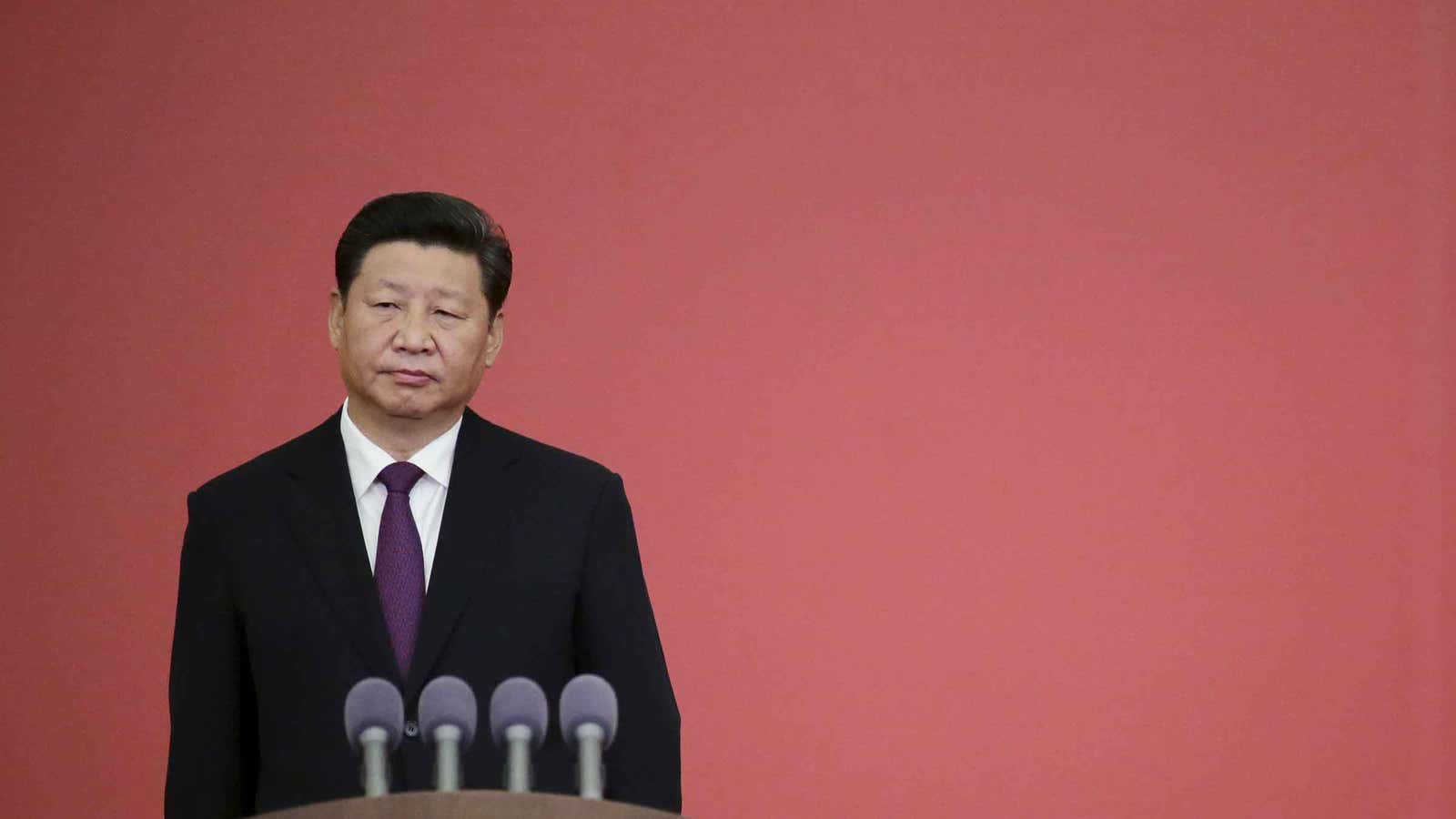While much of the focus of China’s anti-corruption drive has been on lavish overspending by government officials, some of those facing punishment actually didn’t spend enough government money—they were castigated for not carrying out expenditures that the government had allocated to a project.
Almost 250 government officials have been sacked, demoted, or have received warnings in a crackdown against those who do not push through central government directives quickly enough, according to state newswire Xinhua (link in Chinese).
A separate Xinhua report (link in Chinese) cited a project in Henan province that was due for completion this year, and for which the central government allocated 150 million yuan ($23.6 million) in 2013. Nine officials received demotions and warnings after an investigation found that the project had still not begun by May this year. In Shanxi province, construction on a food recycling plant had not begun despite funding being made available in 2012.
The punishments come after the Chinese Communist Party (CCP) established new rules concerning demotion in July this year. Before then, personnel rules suggested an official could move up the ranks if they were good, or stay at the same level if not; officials could only be demoted if they broke either the law or the CCP’s rules.
Clearly, such a system could end up supporting lazy or inefficient officials, and the drive to punish inaction among government functionaries is designed specifically to root out such cases. But another major campaign from the central government—president Xi Jinping’s anti-corruption drive—has at times been blamed precisely for encouraging such inaction.
Xi’s campaign has focused on crimes related to embezzlement, misdirection of funds, or inappropriate spending. Since it began almost two years ago, it has netted hundreds of high-level government officials. It has succeeded in reducing government spending on items such as luxury gifts and fine wines at government dinners, but some officials have been so worried about looking corrupt that they have put even legitimate projects on hold.
“Local officials are no longer keen to launch investment projects,” a government official in Zhejiang province told Reuters last year. “They are laying low.”
